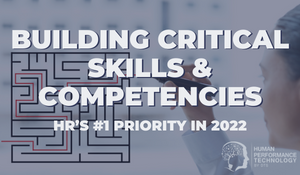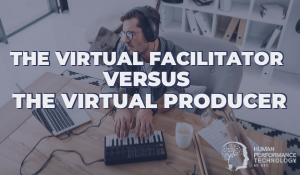Audience Expectations in Virtual Facilitation
How have audience expectations changed following the surge in virtual learning? Building audience expectations in the lead up to a virtual event can determine whether or not that event is ultimately deemed successful or mediocre.
The goal is to set the right tone, create a safe learning environment, provide clarity on the casualness or formalness of the event, avert surprises, raise potential flags, head off issues, and generally make the participants as comfortable as possible, with you, your presentation theme and with the online facilitation product itself.
How to Effectively Set Expectations
To effectively set expectations, it’s important to empathise with your participants. This means considering their environment, their work conditions, what’s happening before and after the session for them, and what their pain points might be. To do this, we have identified the top 15 points for you to consider.

Top 15 Points to Consider When Setting Audience Expectations for Virtual Facilitation
- What does the group need to know about you/your process before attending the session? (e.g. Do you expect everyone to have their camera on and audio unmuted.)
- What are some of the common questions, assumptions and misconceptions the participants might have about you and/or your process?
- Do you have a facilitator bio you can send to participants?
- How does the time of day for the session impact on the participant? (e.g Are you holding the session over the lunch hour or before or after typical business hours?)
- How does the length of the session impact your participants? (e.g. Consider if the attendees need breaks to stay energised.)
- Do all participants understand the goal of the session? How do you know for sure?
- What are the organisational dynamics of the audience members and will everyone feel comfortable contributing?
- Does the group know how you will handle conversations that get heated or are considered sensitive?
- Are the participants nervous about using the online facilitation technology?
- What support resources do you or your technology partner have that could help the participants prepare for the interactive functionality?
- Will the participants need to do any pre-work and/or post-work?
- Will there be an assessment at the end of the session?
- Is there a manager, team leader or internal advocate who can support the virtual process and follow up with participants?
- Do you have a co-facilitator or team member, who will be present in the session? If so, you can introduce this person in advance.
- Do you have a technical producer who will support your session? If so, you can arrange to do a dry run of your session, test all the digital features and agree on a Plan B should anything go wrong.
These will help you and your audience prepare in new ways that ultimately make it a more effective session for everyone.

Trevor O'Sullivan
General Manager. Since the early 2000s, Trevor has worked with thousands of Talent Management professionals to develop and apply assessment-based talent management solutions for selecting, developing and managing people. Trevor is an active member of the TTI Success Insights (TTISI) Global Advisory Council, contributes to TTISI product development and is a regular presenter at TTISI-R3. He is honoured to have received multiple Blue Diamond Awards and, more recently, the Bill Brooks Impact Award recognising his contributions to the TTISI global network.



We Would Like to Hear From You (0 Comments)